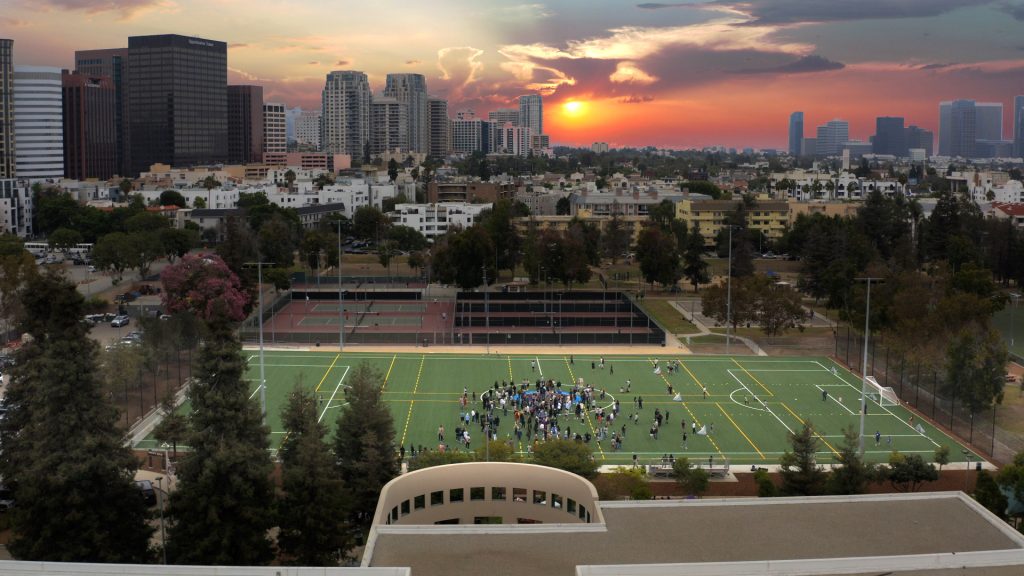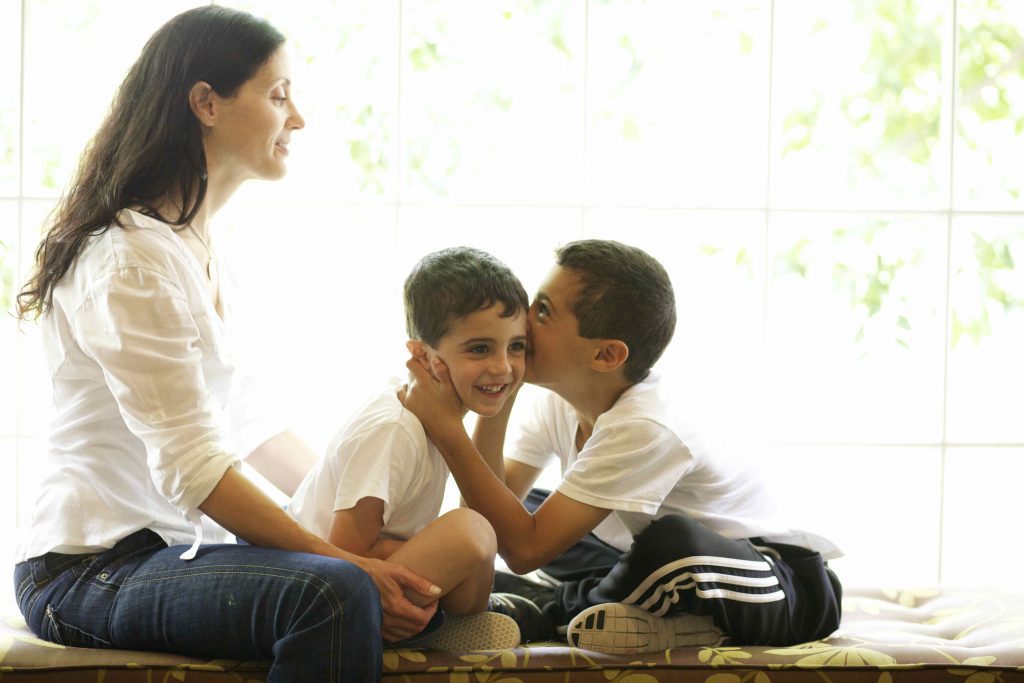Editor’s note: As TM23 Foundation prepares to break ground on a new Tommy’s Field — named in honor of Nikki Mark’s late son Tommy — at Vista Del Mar, Mark writes about what it feels like to lose a child, including to gun violence, and why we should care.
I am going to explain what it feels like for a parent to lose a child in hope that my perspective inspires you to support these parents and improve our world at the very same time.
As gun violence and mass shootings increasingly plague our country and destroy innocent lives, our country is begging for change. It may take a village to raise a child, but it takes a compassionate and informed community to help a parent recover from losing one.
There are no real words that adequately describe how it feels to lose a child. “Horrific,” some cry. “Tragic!” We all commiserate. Soon, those not directly impacted by the loss click back into their regular lives full of regular problems and often fail to appreciate both.
I became an unwilling expert on loss four years ago when my 12-year-old son Tommy went to sleep and never woke up. I have no gun or human being to blame, but still know all too well what it feels like to fall asleep a regular person and wake up a new member of the worst club on earth. Don’t even try to imagine it. You can’t. And those of us who have been through it hope you never will. Just know that the abyss of grief is so dense that it viciously suffocates every mental, emotional and physical channel of the body. Those subjected to the experience can become so lost and utterly hopeless that they wake up one day realizing that the person they once thought they were has been eviscerated. Their lost souls must start over. Move forward. Miraculously find their way.
The day my son left I thought about dying. Instead, at the suggestion of a friend, I dedicated myself to building his legacy and serving my community. Thousands of community members of all backgrounds, races and political parties rallied around my family to transform a deserted field in a public park into a much-needed neighborhood athletic field (dedicated in my son’s name) for both unstructured and organized play.

Despite our good intentions, a surprising battle ensued between a small group of park neighbors and old school community activists who wanted the existing dirt field to remain empty and full of holes (as it had been for 20 years) and the rest of the community who wanted to resurface it, make it safe for children and share my son’s infectious spirit of play with the city he loved. My brain, frozen with shock and tortured by grief, couldn’t comprehend why our opponents were so angry about a field in a park for children to play on, especially when they had never offered any other use for the land and the people in our city were facing far greater issues, like a mental-health crisis and homelessness.
Every day, I woke up dreading existence without my son and every day I got out of bed determined to honor him with solutions. When it became clear that that our opponents had zero interest in productive conversations or compromise, and that some local government representatives were jittery about the frivolous lawsuits and loss of votes being threatened by these neighbors, I understood that it was up to me, my family and the greater community to cut through the madness and forge an acre of change.
What I didn’t understand at the time, and what many don’t realize about grieving parents, is that when they feel called to honor their child by addressing the very issue that took their life, or by sharing special qualities and supporting favorite interests of their child for the benefit of the rest of us, they discover purpose. They create new hope. And they generate a new kind of inner peace and fulfillment that carries them forward in this lifetime. At some point, realizing they have endured the worst of all fears, they find themselves fearless. Relentless in their pursuits. Propelled by a superhuman dose of will and determination.
I have heard both Democratic and Republican politicians say that it will take the parents who have a lost a child to change our country’s gun laws. It will also take the rest of Americans to show up, become an extended part of their community and support them in ways we can. Because these are the people who will fight to the bitter end. They are the ones who are driven by a love so eternally deep that they will search for solutions day and night. And while the rest of us prioritize our own lives and divide our remaining attention between other social and political causes near and dear to our hearts, these parents are the ones who will strive to improve gun safety for all of us and never, ever,give up.
As absurd as it may sound, receiving city approval to donate over a million dollars of community-raised funds to improve a dirt field in a public park was nearly impossible. Had my family and our extended community not been driven by love, we would have given up and caved in to all the senseless bureaucracy. It’s hard to imagine what it will take to change our country’s current standstill on serious issues like gun violence, but we can start by empowering these parents and following their lead.
When we write a single letter of support, we honor their children. When we show up and vote against a government representative who cares more about their own power than innocent lives, we celebrate their children. And when we take the time to donate a dollar, show up to a local meeting or even simply attend an event, we contribute to the legacies of their children and further define our own.
We don’t have to be celebrities to lead a movement or create meaningful change. In 1980, Mothers Against Drunk Driving (MADD) was started by a mother in California whose 13- year-old daughter was killed by a drunk driver. Since then, drunk driving deaths in our country have fallen by 50% and MADD has grown into 3 million members and 600 state organizations across all 50 states. MADD puts aside personal politics and advocates for improved legislation, life-saving technology, the education of our youth and support for victims. Forty years later, America finally understands and mostly agrees that while we have the right to purchase alcohol, we do not have the right to drink and drive, for that combination is what kills.
To the grieving parents choosing to advocate for gun law reform or any other issue impacting the wellness and safety of our children, I offer my heart and extend my hand. What aspect of the conversation do you all agree needs to be addressed first, and how can I help? I will forward your efforts to my community, and they will pass it on to theirs. One by one, we will connect. We will unite. And we will prevail. Because if anyone can lead our country toward change, it is going to be you, and when that day comes, no matter how slow and painful the road may be, it will be your beautiful children the future of our country will have to thank.
Nikki Mark is founder and president of the TM23 Foundation, which aims to teach children the power of community, equality, diversity and inclusion, one field at a time.



































